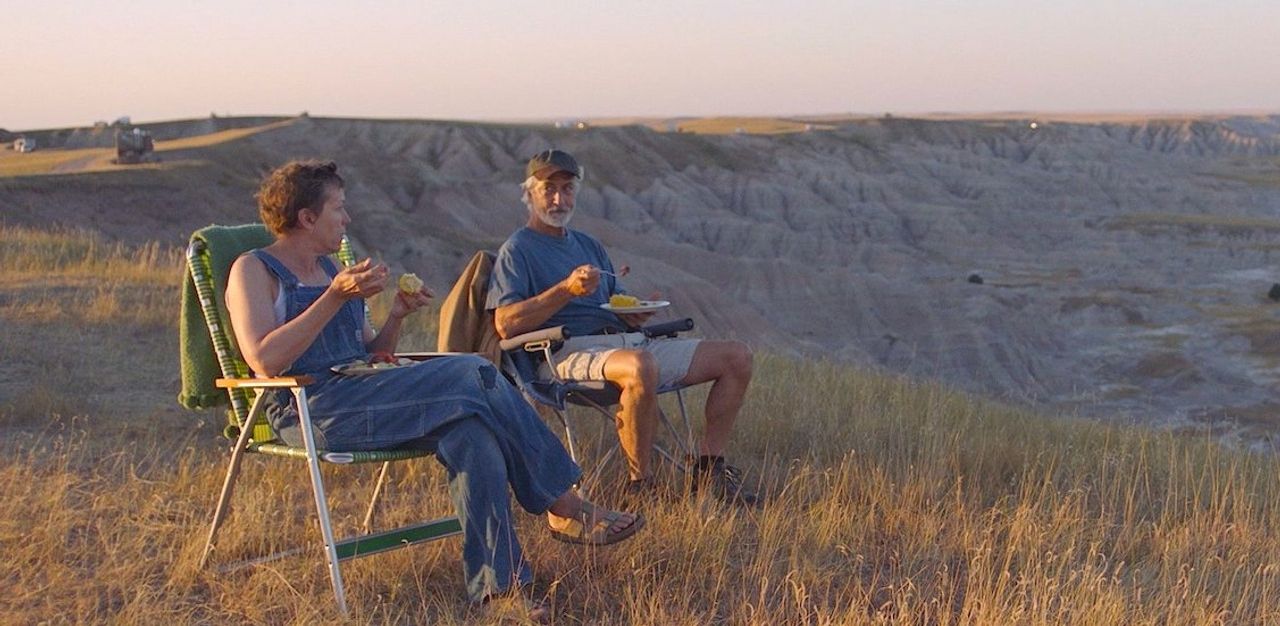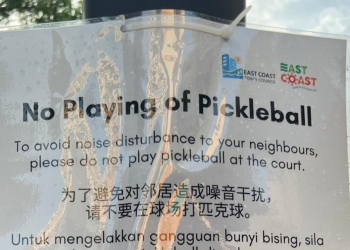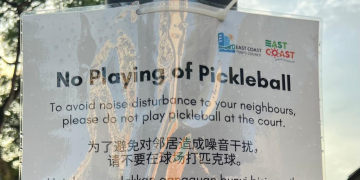Beyond the arthouse skin that Nomadland dons, the immensely personal film is really about the star-lit adventures of an unabashedly free-spirited 61-year-old woman and her van Vanguard, taking the world one day at a time with nature as their guide. But it’s not all a rose garden.
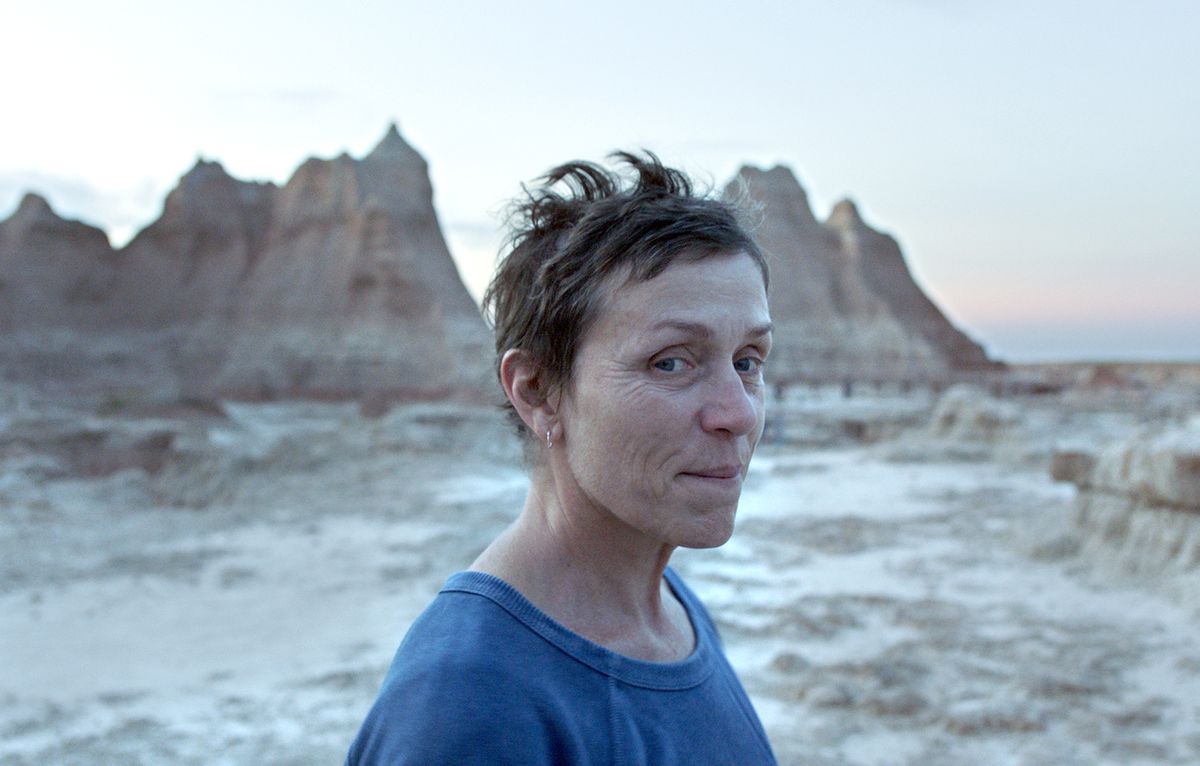
The movie begins by establishing how many had been bleakly displaced from their townhomes at Empire, Nevada. For viewers who are not entirely familiar with American small towns being built around industries, not much is offered in the form of contextualisation. But for the most part, it is enough to keep the movie going and works with its subtlety.
A close and quiet portrait of the gifts and tribulations of living an itinerant life, Chloe Zhao’s Nomadland takes place through the lens of protagonist Fern, portrayed by Frances McDormand. McDormand plays her role with a resolute sense that is almost precious, bringing a harsh ruggedness and reality to Fern, who had lived in Empire, Nevada, until the gypsum plant closed, and Empire’s zip code literally got eliminated.
It was also after this that Fern’s husband had died, adding to her sense of solitude, and contributing to her choice of wanting to be a “houseless” nomad. It is from here that viewers are led to following Fern’s van-dwelling journey, watching as she struggles to get through one day, and then the next. During Christmas, she is a seasonal packer at Amazon, which gives her enough to keep her afloat. Emergency money, though, is out of the question, as we experience when Fern’s van breaks down.
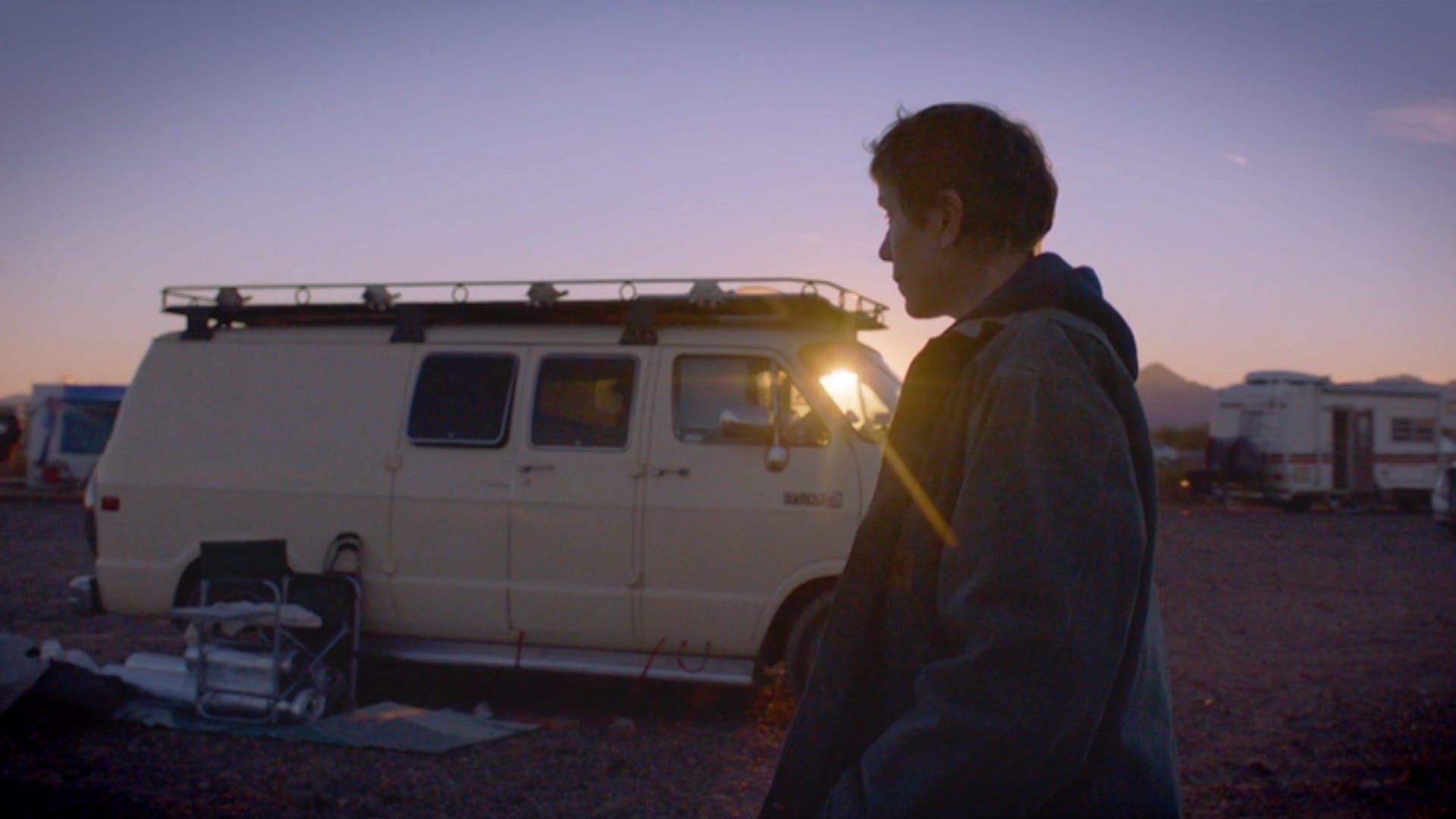
Fern is a woman who comes across as painfully average, and it weaves a beautiful message in itself, unfolding the strength that is held in every traveller we come across in the long, winding road of life. Throughout Nomadland, we watch Fern engage with communities that welcome her with open arms. Modern nomads, with whom she shares campfire tales of sights so breathtaking that they would make dying at that very moment perfectly fine. A boy, who speaks of a love lost for the love of a nomadic life. A love interest, and Fern’s own family, both of whom welcome her into their homes.
The people that Fern meets are the storytelling devices of Nomadland, giving viewers a sense of the trade-offs that they make on a daily basis, and depicting freedom as a concept that is to each their own. Their experiences are enviable, and the off-road sights they have seen will never be seen by the eyes of a working professional on a travel itinerary.
Come as you are
Joshua James Richards’ cinematography is breathtaking while intensely simple, almost as if telling audiences, “come as you are”. It’s a theme that extends beyond the movie’s visual tone. It is also in its choice of using a 61-year-old woman as its protagonist, and in its plot, free of drama.
There are numerous times in the film in which we watch Fern walk away from the comforts of family, a home, and a “normal life”. The filmmaking is patient and leaves viewers with a longing for Fern’s happiness merged with one’s own understanding of happiness. Fern lingers on these opportunities, still eventually turning her back on these comforts for her own sense of comfort. Ludovico Einaudi’s unmistakable music accompanies this continuous memoir with a pristine stillness and beauty.
Chloe Zhao’s Nomadland leaves viewers with a weight of choice and an understanding of the beauty that one can find in today’s almost dystopian world and a vast America that is recovering from Trump’s reign. The film does little to push viewers into wanting choices for Fern. It is perfectly balanced in that sense, not making us feel sorry for Fern, while also allowing us to empathise with her loneliness – made of her own. There are complexities about her life that we simply cannot understand.
Here’s where the balance shifts
Director Zhao wears many hats, tripling up as writer and editor. Perhaps this is what gives the film its strength in impactful, fleeting tonality. After Nomadland premiered in September last year, it clinched top prizes at both Toronto and Venice International Film Festivals. Months later at the Golden Globes in March this year, Zhao became the first woman of Asian descent and the second woman ever to win Best Director. At the same awards, the film won Best Drama. Leading lady Frances McDormand received a nomination for Outstanding Performance by a Female Actor in a Leading Role at the 27th Screen Actor Guild Awards. The world watches to see what will come of Nomadland’s whopping six Oscar nominations, including for Best Director, Best Picture and Best Actress, in April.
But with all the beauty and realism that comes with Nomadland, there is one thing that is missing. The lack of perspectives portrayed in the movie by “people of colour” leaves a gaping hole, forcing one to wonder if minority groups would be able to afford the privilege of even being a nomad. Is the weight of an itinerant life simply too heavy a risk for people who are subject to violent social and systemic racism in an American world?
For what it is worth, it looks like nomadhood is a choice that some make, and while it is riddled with sacrifices, perhaps it is still a choice that not everyone can make. There is still plenty to envy there.
Join the conversations on THG’s Facebook and Instagram, and get the latest updates via Telegram.
